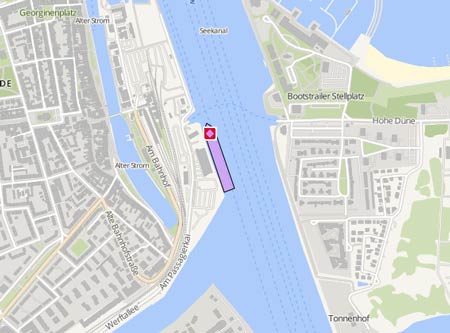BAHIJAH
Latest ports
Latest Waypoints
Latest news
Shameful episode in Australian live export ended in Haifa
The arrival of the 'Bahijah' in Haifa on April 6, 2024, has put an end to one of the most shameful episodes in Australian live export history. The animals on board, who have been subjected to a gruelling 34-day journey, were due to soon be offloaded at the port. The animals were subjected to before being offloaded back in Australia on Feb 15, to stand in feedlots for several weeks before departing again on March 3. In total, at 90+ days, this stood as one of the longest live sheep export journeys in Australian history. The Australian sheep and cattle were sent into the escalating conflict in the Red Sea region, turned around, sat for days in the sweltering heat off the coast of Western Australia, offloaded, sat in a feedlot for over two weeks, loaded on board again, and then sent on an extraordinarily long and treacherous journey around the Cape of Good Hope, known for its rough seas. The RSPCA was urgently seeking further information about the welfare of the animals on board and what actually happened to the animals involved across the entire duration of this saga due to the lack of transparency, the inability of regulations to protect animals, and the profit-at-all-costs approach, that are endemic to live animal export.
Sheep and cattle on their way to Haifa again
After a little over two weeks since 16,000 sheep and cattle were unloaded from the 'Bahijah', Australia’s Department of Agriculture has given the all-clear to load them onto the same ship and re-export them to Israel. The vessel will not use the Red Sea route due to the danger of Houthi attacks, which was the reason it was ordered back from the route in the first place. The animals already spent nearly six weeks at sea which included the trip from Fremantle to the Red Sea, diverting from the route, the return to Australia, being stranded off Perth and then finally being unloaded on Feb 14. In all that time, the vessel berthed in port only once to restock supplies and fodder. After disembarking, the livestock were taken by truck from Fremantle Port to be held in a feedlot in quarantine amid biosecurity concerns. Now, the Department of Agriculture has approved a notice of intention to export a consignment of that same livestock to Israel, the only condition being that the exporter does not go through the Red Sea. The exporter did submit a plan to re-export the animals without unloading them back to the Middle East via the Cape of Good Hope, a 33-day route around Africa to evade the Houthis. A plan that was shot down by the Department. From the departure on Jan 5 and unloading on Feb 14 a total of 81 animals died. Four cattle and 64 sheep died while onboard while seven cattle and six sheep died on land. The ship finally sailed from Fremantle on MArch 3 at 9 a.m. with an ETA at Haifa as of April 5.
All livestock unloaded in Fremantle
On Feb 14 the 'Bahijah' has left the port of Fremantle, after the livestock have been discharged from the vessel and relocated by truck. Some 16,000 sheep and cattle that were ordered back from the Red Sea due to the possibility of Houthi attacks on Jan 16, were finally unloaded in the port. The unloading was supposed to begin over the previous weekend, however, the vessel could not start disembarking the animals any earlier due to another livestock carrier being loaded in Fremantle. According to Australian law, the livestock must be moved into quarantine after disembarking. Unloading of the livestock started on Feb 12. They were taken by truck from Fremantle Port to appropriate premises in Western Australia. A total of 81 animals died since the departure from Fremantle on Jan 5. While on board, four cattle or 0.18 % and 64 sheep or 0.45 % died, while seven cattle and six sheep died on land. The next steps for the livestock were a commercial decision for the exporter. Since the return, the vessel has been stranded off Perth for weeks except when it berthed in port to restock supplies and fodder. The exporter did submit a plan to re-export the animals without unloading them back to the Middle East via the Cape of Good Hope, a 33-day route around Africa to evade the Houthis. The plan was not approved by the Department of Agriculture as the exporter did not ensure that the arrangements for the transport of the livestock to their final overseas destination were appropriate to ensure their health and welfare.
Upload News

